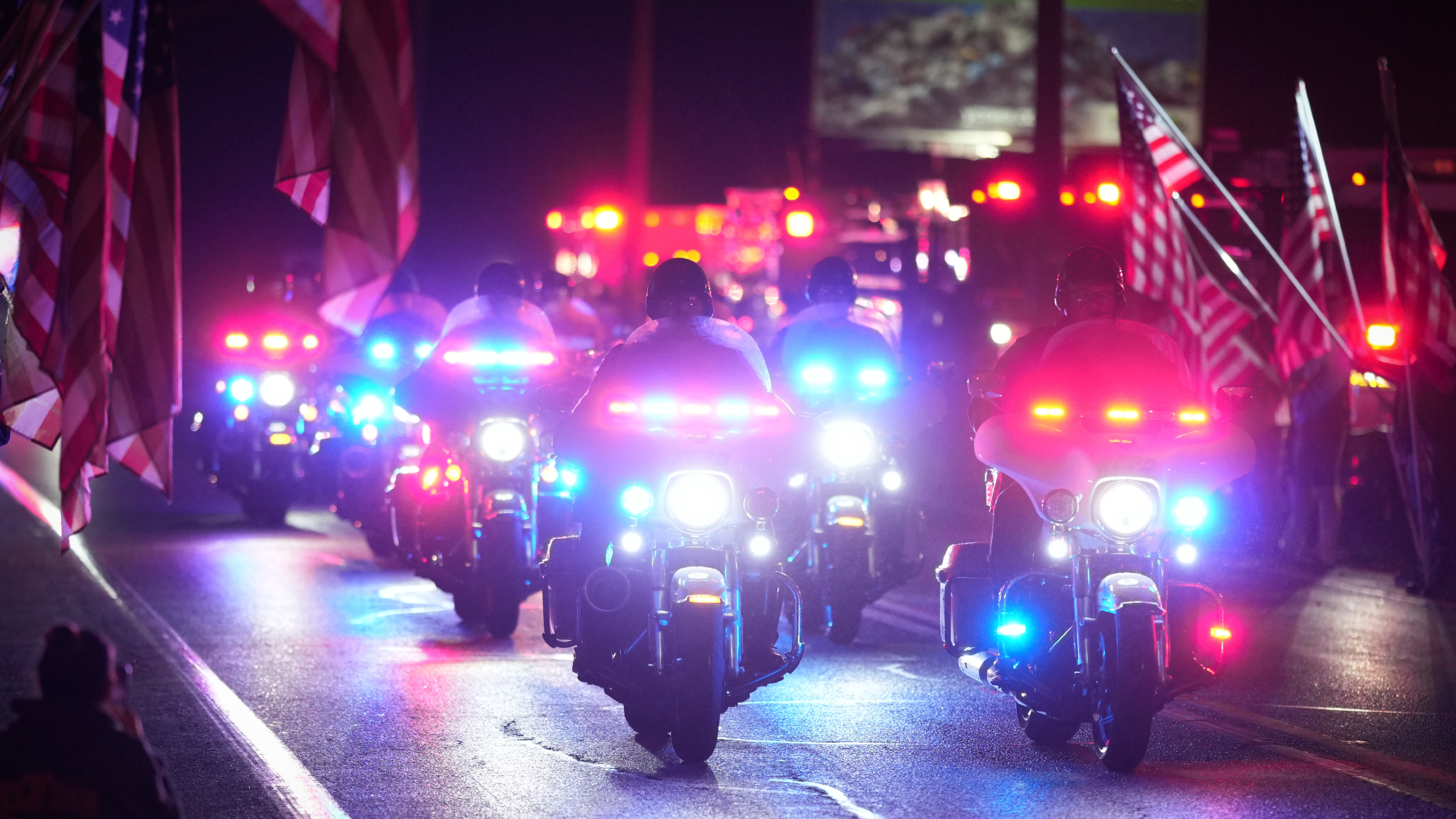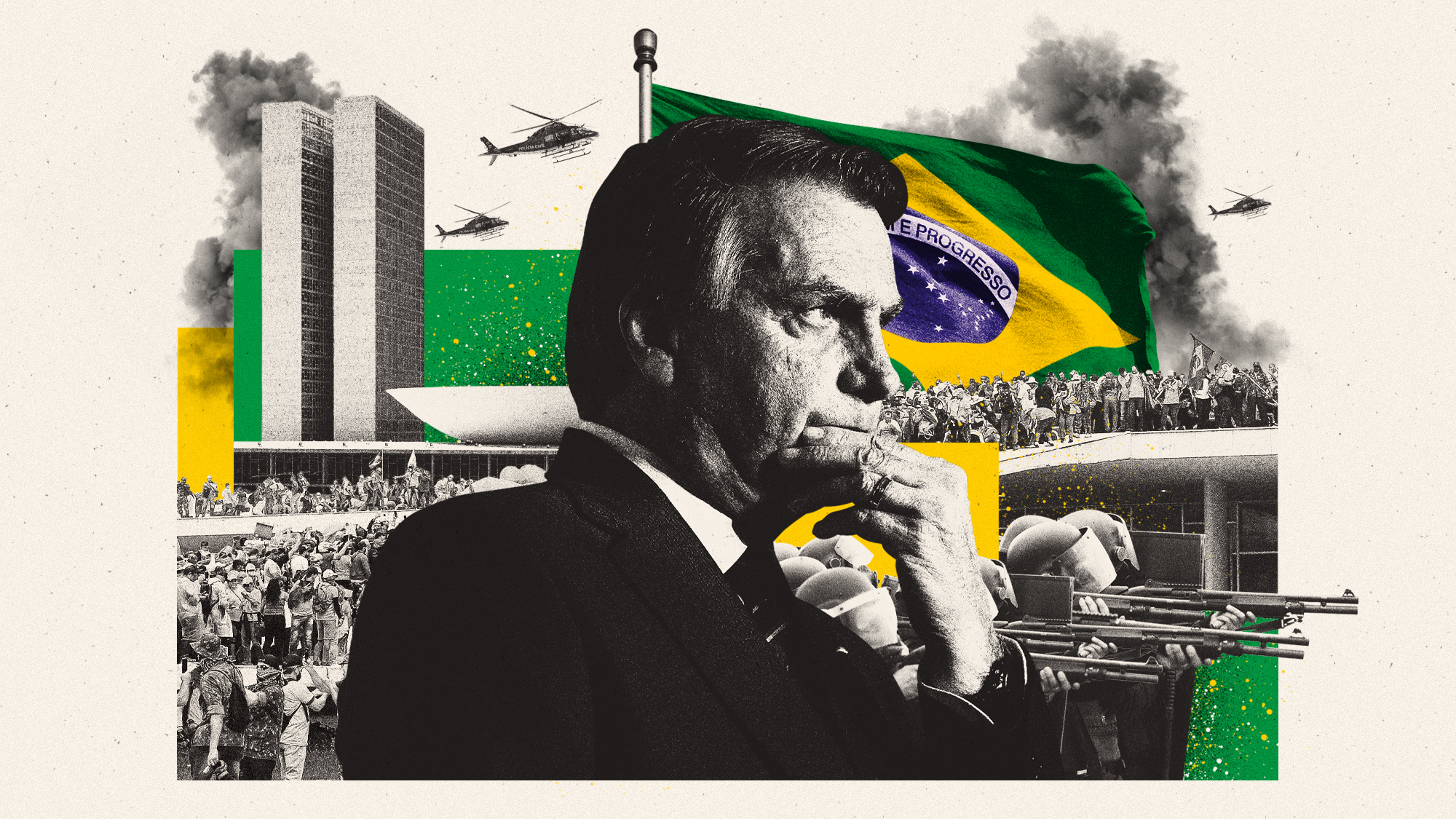What are the differences between British and US police tactics?
American officers accused of escalating George Floyd demonstrations by using excessive force

A free daily email with the biggest news stories of the day – and the best features from TheWeek.com
You are now subscribed
Your newsletter sign-up was successful
Shocking footage of US police officers deploying “military style” tactics against demonstrators at the George Floyd protests has led to comparisons with policing practices in other countries.
In other nations “including many in Europe, the police practices that are causing outrage in the United States are either entirely banned or are far more strictly regulated”, reports The Washington Post.
In countries such as UK, police training “may focus on how to use space and time to reduce a threat”, says the newspaper.
The Week
Escape your echo chamber. Get the facts behind the news, plus analysis from multiple perspectives.

Sign up for The Week's Free Newsletters
From our morning news briefing to a weekly Good News Newsletter, get the best of The Week delivered directly to your inbox.
From our morning news briefing to a weekly Good News Newsletter, get the best of The Week delivered directly to your inbox.
By contrast, crisis intervention and de-escalation “tends to be an afterthought” during training in the US, according to Paul Hirschfield, an associate professor of sociology at New Jersey’s Rutgers University.
Indeed, US officers have relied on “escalated use of force to try to police the protests” triggered by Floyd’s death, says Jennifer Cobbina, an associate professor in criminal justice at Michigan State University.
Pointing to the use of anti-riot weapons such as tear gas, rubber bullets and flash grenades, Cobbina told Wired that the US police response has been “incredibly heavy-handed, it’s militarised tactics - and it’s used on protesters who are actually protesting police violence”.
Officers in the US are “much more militarised than [other] western countries”, agrees University of Arizona professor Jennifer Earl, who studies police and protests.
A free daily email with the biggest news stories of the day – and the best features from TheWeek.com
“We do on average have more aggressive policing than our peers,” Earl told The Washington Post.
–––––––––––––––––––––––––––––––For a round-up of the most important stories from around the world - and a concise, refreshing and balanced take on the week’s news agenda - try The Week magazine. Start your trial subscription today –––––––––––––––––––––––––––––––
As the BBC reported in the wake of Extinction Rebellion protests in 2019, police in the UK appear to take the view that “attempting to carry out mass arrests” during any protests “could cause trouble”.
“By ‘waiting it out’, they hope that the demonstrations might gradually wind down of their own accord,” according to the broadcaster.
However, over in the US, police have instead attempted to “terrify people with military tactics” during the Floyd protests, says Wired.
Ed Maguire, a professor of criminology at Arizona State University, told the news site that “the research suggests pretty routinely that when police over-respond to these events, they tend to escalate rebellion and defiance, rather than de-escalating it. So we recommend a more measured approach.”
-
 6 of the world’s most accessible destinations
6 of the world’s most accessible destinationsThe Week Recommends Experience all of Berlin, Singapore and Sydney
-
 How the FCC’s ‘equal time’ rule works
How the FCC’s ‘equal time’ rule worksIn the Spotlight The law is at the heart of the Colbert-CBS conflict
-
 What is the endgame in the DHS shutdown?
What is the endgame in the DHS shutdown?Today’s Big Question Democrats want to rein in ICE’s immigration crackdown
-
 Maxwell pleads 5th, offers Epstein answers for pardon
Maxwell pleads 5th, offers Epstein answers for pardonSpeed Read She offered to talk only if she first received a pardon from President Donald Trump
-
 Why have homicide rates reportedly plummeted in the last year?
Why have homicide rates reportedly plummeted in the last year?Today’s Big Question There could be more to the story than politics
-
 How the ‘British FBI’ will work
How the ‘British FBI’ will workThe Explainer New National Police Service to focus on fighting terrorism, fraud and organised crime, freeing up local forces to tackle everyday offences
-
 Death in Minneapolis: a shooting dividing the US
Death in Minneapolis: a shooting dividing the USIn the Spotlight Federal response to Renee Good’s shooting suggest priority is ‘vilifying Trump’s perceived enemies rather than informing the public’
-
 ‘Stakeknife’: MI5’s man inside the IRA
‘Stakeknife’: MI5’s man inside the IRAThe Explainer Freddie Scappaticci, implicated in 14 murders and 15 abductions during the Troubles, ‘probably cost more lives than he saved’, investigation claims
-
 Trump pardons crypto titan who enriched family
Trump pardons crypto titan who enriched familySpeed Read Binance founder Changpeng Zhao pleaded guilty in 2023 to enabling money laundering while CEO of the cryptocurrency exchange
-
 3 officers killed in Pennsylvania shooting
3 officers killed in Pennsylvania shootingSpeed Read Police did not share the identities of the officers or the slain suspect, nor the motive or the focus of the still-active investigation
-
 The trial of Jair Bolsonaro, the 'Trump of the tropics'
The trial of Jair Bolsonaro, the 'Trump of the tropics'The Explainer Brazil's former president will likely be found guilty of attempting military coup, despite US pressure and Trump allegiance